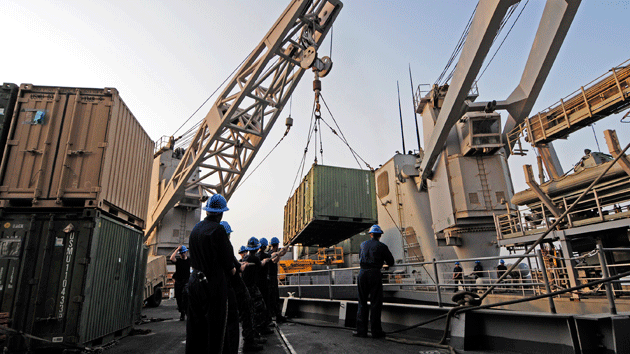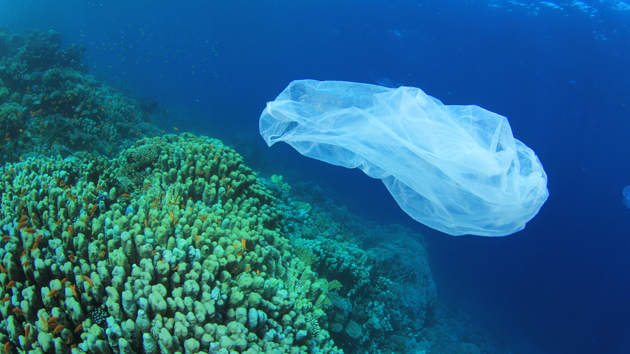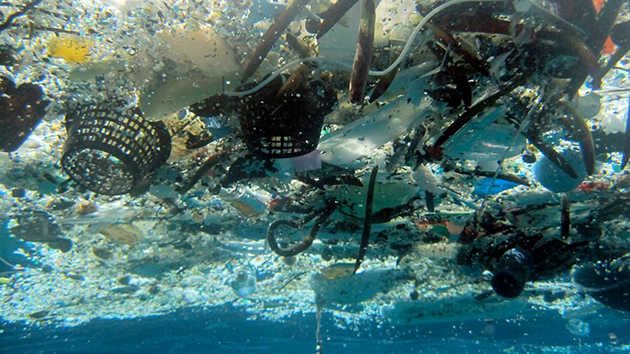
<a href="https://www.flickr.com/photos/navalsurfaceforces/5963895929/in/photolist-a61wtT-dfPMt8-aVJBe8-5ebFJK-9EC86E-34B2Zg-8bbHZz-8ZVQxY-6risBE-zBQLR-bZ61EU-oJGkqf-aJtnrV-6fvKv5-7UCJW-6nxHL9-6NU1dh-vPA6pq-xarMSw-3NfjM-cMCJAd-KawtG-b9pRug-85DEKC-85AvEx-a3VfAZ-6mGMjd-kN2jgc-85AvGV-7fyhzv-b6MCvz-kN3J2C-4C2JEk-7Syqv1-sUaAm-72Qpwz-64nssd-pHQAoS-pY8ufQ-5bdjXq-5bdjUu-65xJyz-aR4NtR-5TQ4ex-q1dZDM-egrymc-5E4bHm-9y5cTw-nbyZRq-83JJAd">Naval Surface Warriors</a>/Flickr
We may imagine the bottom of the deep blue sea as a peaceful, quiet place—certainly compared with the blaring horns and chit-chattering radios of rush-hour traffic. But the ocean is filled with the sounds of undulating waves, marine animals calling out to one another, and, increasingly, the ceaseless din of human commercial activity. Over the past 60 years, our contribution to the undersea cacophony has doubled every decade, and much of that noise is generated close to the shore. Roughly 40 percent of the world’s population lives within 100 kilometers—or 62 miles—of the coast.
A new study in the journal Nature finds that all the racket from our ships and construction activities penetrates deep beneath the surface, not merely messing with the communications of undersea mammals but changing the very nature of life at the bottom. The researchers found that bottom-dwellers such as small clams and lobsters, which are crucial to the underwater ecosystem, alter their behavior when exposed to man-made noise. To put it simply, they don’t move around as much.
Here’s why it matters: These creatures are responsible for churning up sediment when they burrow into the seabed, thus increasing oxygen levels and distributing nutrients. Their waning activity, the study’s authors say, may impact seabed productivity, sediment biodiversity, and even fisheries production. “There has been much discussion over the last decade of the extent to which whales, dolphins and fish stocks, might be disturbed by the sounds from shipping, wind farms, and their construction,” co-author Tim Leighton, an expert in underwater acoustics at the University of Southampton in England, noted in a statement accompanying the paper. “However, one set of ocean denizens has until now been ignored…These are the bottom feeders, such as crabs, shellfish and invertebrates similar to the ones in our study, which are crucial to healthy and commercially successful oceans because they form the bottom of the food chain.”
And these kinds of creatures, unlike fish and dolphins, can’t simply relocate to escape the noise. To maintain healthy oceans, we humans might simply have to keep it down.














